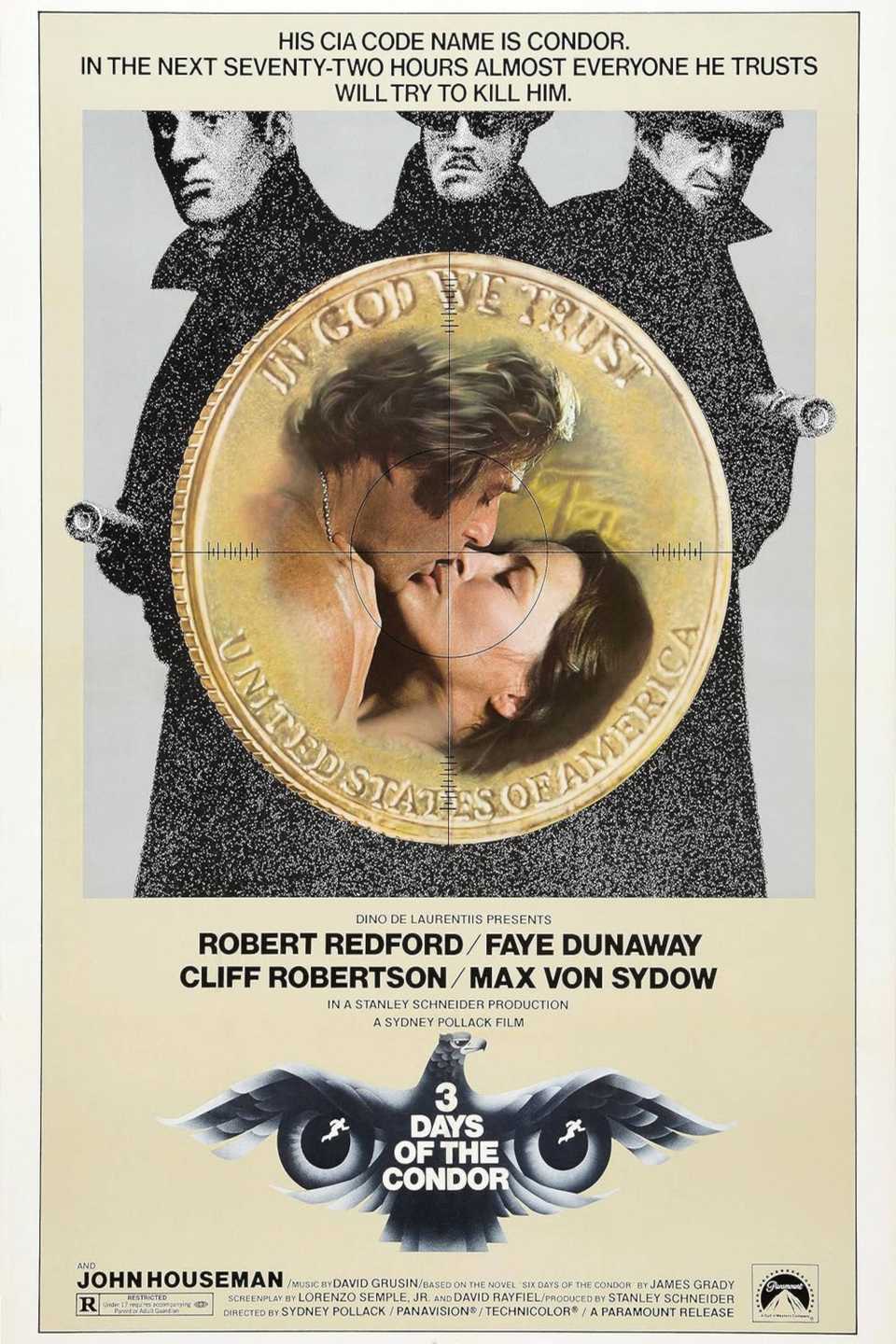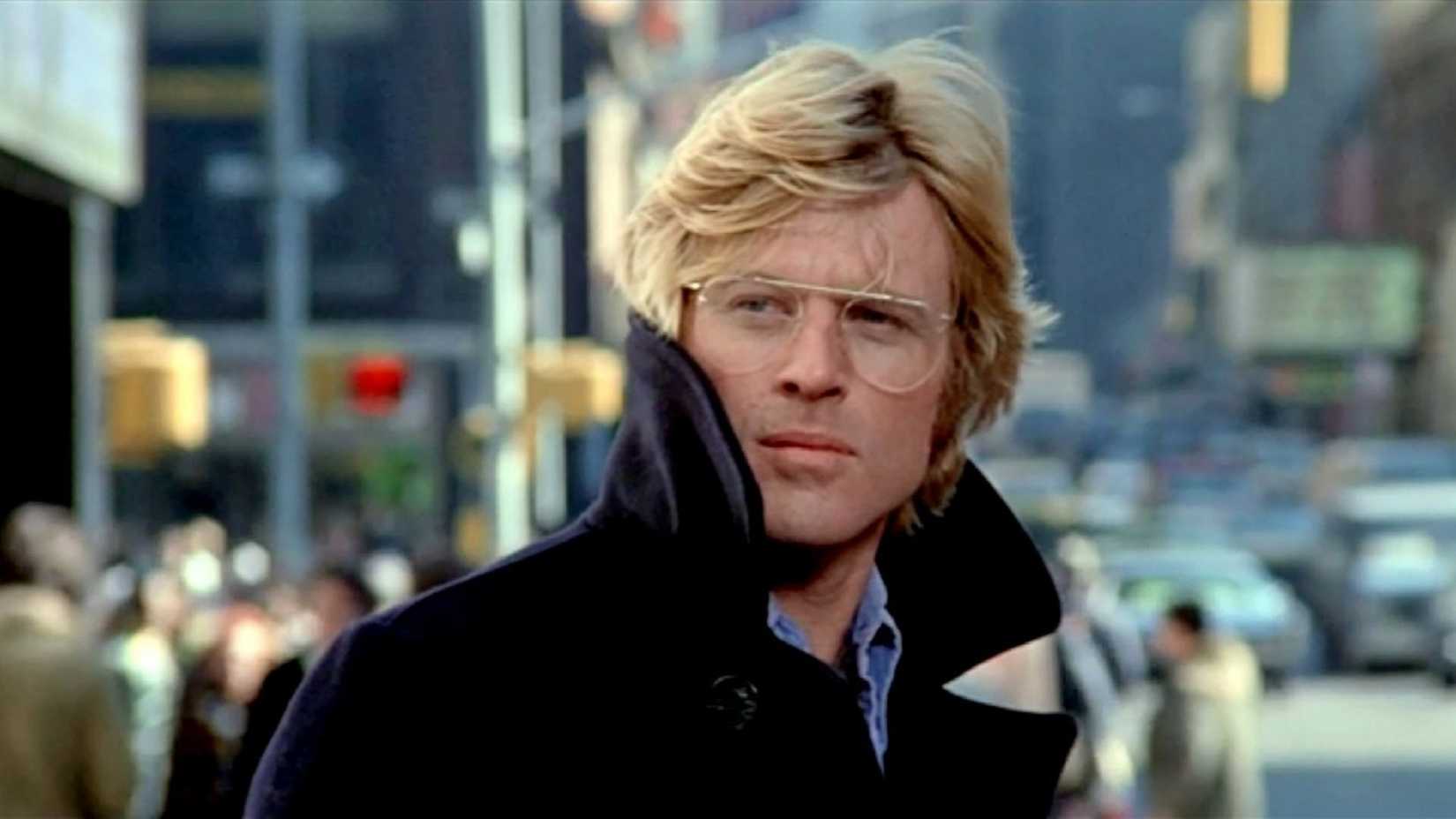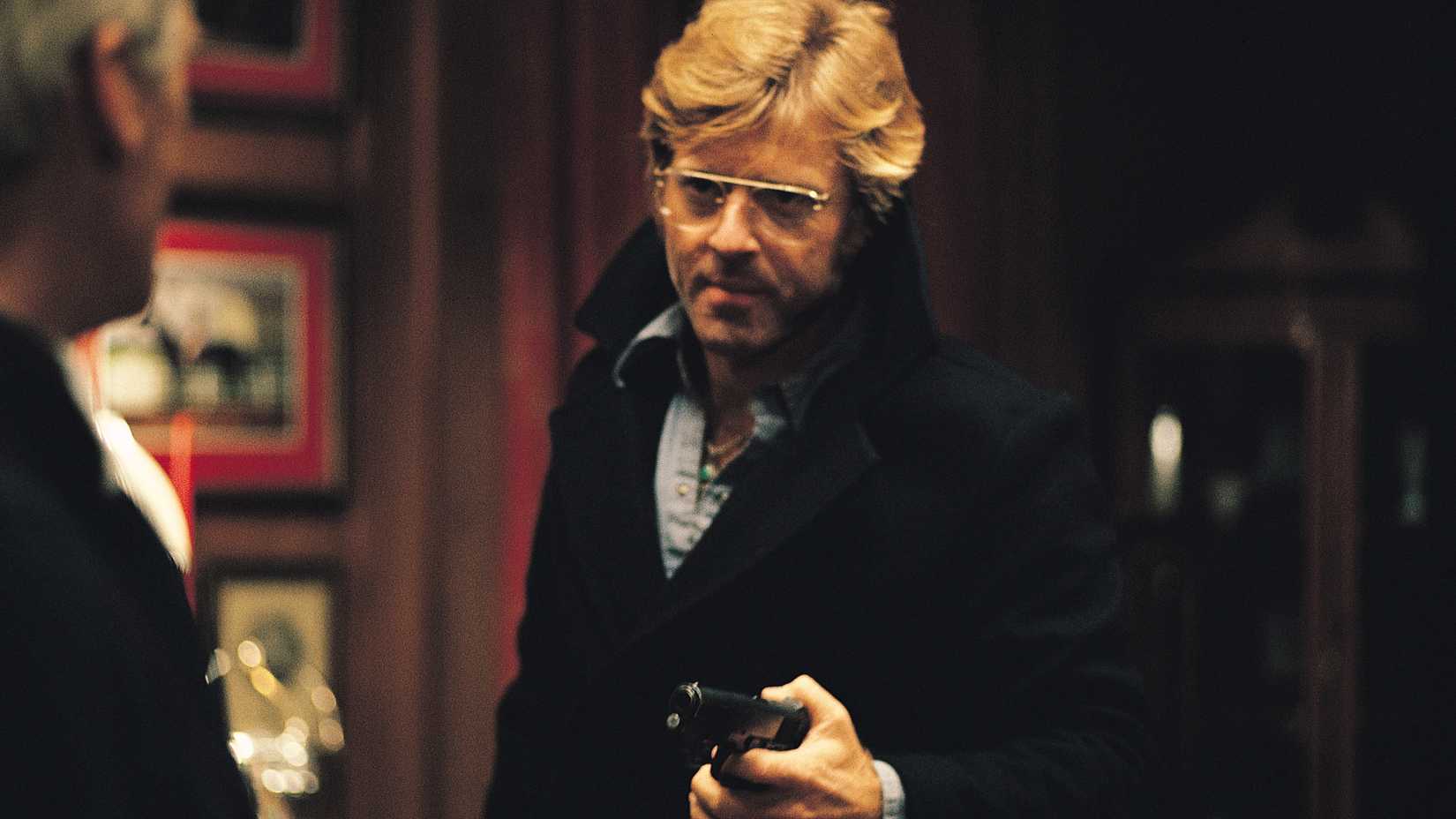The most enduring and important creative relationship that Robert Redford had throughout his career was with director Sydney Pollack, who first directed Redford in the 1966 drama film This Property Is Condemned, which gave him his first leading film role. After reuniting with the 1972 Western Jeremiah Johnson and the 1973 hit romantic drama The Way We Were, Pollack and Redford ventured into the espionage genre with the 1975 spy thriller Three Days of the Condor. In it, Redford plays Joe Turner, a mild-mannered CIA researcher who, after returning from lunch to find all his colleagues murdered, must stay alive while uncovering the motive behind the killings.
Three Days of the Condor unfolds as a relentless cat-and-mouse thriller, in which Turner makes the shocking discovery that there exists a CIA within the CIA. Through Turner’s constant state of fear, Three Days of the Condor chillingly embodies the distinctly paranoid mood that gripped the United States in the immediate aftermath of the Watergate scandal and Richard Nixon’s resignation. For Redford, who died at the age of 89 on September 16, 2025, Three Days of the Condor is arguably the most purely exciting film of his career, in addition to being one of the best spy thrillers ever made.
Robert Redford’s Joe Turner Learns To Trust No One in ‘Three Days of the Condor’
In the tradition of the classic Hitchcockian protagonist who becomes endangered on account of knowing or seeing too much, Three Days of the Condor places Robert Redford’s character, CIA researcher Joe Turner, in the position of being marked for death simply because of a book that he read. As the film opens, he works at the American Literary Historical Society, a front for a clandestine CIA office in New York. There, Turner, whose code name is “Condor,” and his colleagues essentially read books and other periodicals to discern political messages from them.
One of Turner’s seemingly innocuous book reports unwittingly exposes a rogue CIA operation, prompting its unauthorized leader to have the office systematically wiped out. One day, after he makes the fateful decision to leave the office building through a side exit to get lunch for himself and some of his colleagues, a European CIA assassin named Joubert, played by Max von Sydow, enters the building and proceeds to kill everyone inside, including a young woman with whom Turner clearly had warm feelings for. After discovering the massacre, a shocked Turner calls his CIA contact, who assures him that he will be protected. However, a subsequent rendezvous turns out to be a trap, as another CIA assassin attempts to kill Turner, who escapes with the knowledge that he’s no longer able to trust anyone.
The perpetrators of the elaborate conspiracy rationalize their actions through the belief that the death of a single innocent citizen, or even a dozen, is an acceptable price to pay to fulfill a greater public good, which in this case involves securing oil from the Middle East. The astonishing level of moral ambiguity in Three Days of the Condor is embodied by Turner’s relationship with the shadowy Joubert, who, after being his relentless pursuer and would-be killer for most of the film, eventually emerges as Turner’s handler, protector, and ultimate advisor. Indeed, Joubert’s advice and predictions turn out to be especially prescient for Turner, who, through no fault of his own, finds himself with no place to call home.
This 1974 Political Assassination Thriller Is a Perfect Companion Piece to ‘Three Days of the Condor’
One of the closest contemporaries that Robert Redford had in his career was Warren Beatty. While Beatty and Redford never worked together, unlike Redford’s iconic pairings with Paul Newman in the classic films Butch Cassidy and the Sundance Kid and The Sting, they were nonetheless deeply united in their dogged pursuit of a wider range of roles, their political activism, and especially their serious directorial ambitions. Indeed, the year after Redford became the first actor in history to win the Academy Award for Best Director for his direction of the 1980 drama film Ordinary People, Beatty received the honor for his direction of the 1981 epic historical drama film Reds.
Before Three Days of the Condor, Beatty starred in the 1974 political thriller film The Parallax View, in which Beatty plays Joseph Frady, a newspaper reporter whose initial investigation into a senator’s assassination leads to a much wider conspiracy. Released less than two months before Nixon became the first U.S. president to resign, The Parallax View, like Three Days of the Condor, arrived amid a deeply cynical public mood that was highly receptive to conspiracy theories and distrust of government.
This overwhelming sense of defeatism is reflected in The Parallax View and Three Days of the Condor with their decidedly downbeat endings, in which the villains are virtually unpunished for their murderous covert actions. More than 50 years after their initial release, The Parallax View, Three Days of the Condor, along with the 1971 psychological thriller Klute and Redford’s 1976 political thriller All the President’s Men, continue to serve as a stark warning for inclined audiences to constantly look over their shoulders and trust no one.
‘Three Days of the Condor’ Is a Superior Thriller
While Three Days of the Condor was a commercial and critical success at the time of its release, the film was quickly overshadowed by the 1976 political thriller film All the President’s Men. In that film, Robert Redford plays journalist Bob Woodward, whose reporting, alongside that of Carl Bernstein, unraveled the Watergate conspiracy and essentially brought down Richard Nixon’s presidency. The power of the media also figures prominently in Three Days of the Condor, in which Redford’s Joe Turner realizes that the most effective way to ensure his survival and expose the truth is to share his outlandish story to the media.
This revelation is made clear in Three Days of the Condor in a memorable scene in which Turner is standing on a busy New York street with Higgins, the deputy director of the CIA’s New York division, played by Cliff Robertson. After explaining Turner’s grim situation, Turner points out that they are next to the New York Times building, claiming he recently shared his story with the paper. However, the look of triumph on Turner’s face quickly turns to uncertainty after Higgins asks, “How do you know they’ll print it?” before he disappears into a crowd and becomes, in Higgins’ words, a very lonely man. Three Days of the Condor is available to stream on MGM+.

- Release Date
-
August 1, 1975
- Runtime
-
117 Minutes
- Director
-
Sydney Pollack
- Writers
-
Lorenzo Semple Jr., David Rayfiel



